
Guide on how to convert an old refrigerator in to a kegerator #kegerator #guide #howto #DIY
For the last several years, I have been using a boring old white refrigerator to store my kegs. Originally when it came time to purchase one, I was just looking for the best deal out there on a refrigerator that could keep my homebrew cold. I have been serving my beer from picnic \ cobra taps that sit lose on top of the kegs in my fridge. A couple of weeks ago I decided to take the keg fridge to the next level and convert it to a full fledged Kegerator with for taps to accommodate all of my kegs. After ordering the beer tap hardware at MoreBeer and taking a trip to the local hardware supply shop, I had everything that I needed to begin my work.
My goal for this homebrewing blog entry is to list out all of the basics of what you will need to conduct the process yourself but I am sure to miss something and if you need any specifics please feel free to ask; I am happy to help if I can. Please keep in mind that I am not a carpenter, engineer or machinist; so there are probably 10 better ways of doing this, I am just trying to share my experience in case it helps someone else out.
Step 1 – Ordering your gear!
I figured that if I am going to take the time to do this project, I was going to do it right! Recently MoreBeer started to carry Intertap stainless steel beer facuets – tap, which are basically the Holy Grail of beer taps and the best beer faucets currently available!

Intertap Stainless Steel Beer Faucets, Shanks and Beer Taps! #intertap #beer #taps #faucets #stainless #steel
I chose these intertap beer faucets for a few different reasons. For one, they offered an all stainless steel faucets which is important to me because I want it to last, I want my homebrew beer serving to be as sanitary as possbile and I do not want to be worrying about releasing strange metallic particulates in to my beer like I do when using an old chrome tap that erodes after time. Another great thing about these Intertap beer faucets is that they are forward sealing and with forward-sealing faucets the faucet keeps beer in it so the inside doesn’t have a chance to get sticky. This makes cleaning your draft beer system far easier. It also reduces the chance of off flavors transferring to your beer while you are pouring. One of the things that sets Intertap beer taps apart from other forward sealing beer taps is that Intertap faucets use a sliding shuttle that guides the internal o-ring into the perfect position every time. The Intertap stainless steel faucets are also modularly designed allowing you to add helpful items like a ball lock spout, stainless steel growler filling spout and an elongated stout beer spout! They have two varieties of beer faucets in all stainless and 1 features a flow control lever. I ended up getting one of the stainless steel flow control beer faucet and three of the standard stainless steel beer faucets.
MoreBeer has the best price I have found for Intertap Faucets and they also offer free shipping on any home brewing equipment or supply orders over $59. Here are links to them as well as links to the anti-microbial beer line which I also highly recommend. Do not forget to pick a shank for each beer faucet, I got the 4″ shanks and they have me plenty of extra room to run them into my refrigerator door.
Intertap Forward Sealing Stainless Steel Beer Faucet
Intertap Forward Sealing Stainless Steel Beer Faucet with Flow Control
Intertap Stainless Steel Beer Faucet and Beer Tap Shanks
Ultra Barrier Antimicrobial and PVC Free Beer Tubing

West Coast Brewer Beer Tap Handles
For now, I am using chalkboard tap handles, which make it convenient to remind me which beer is on which which tap in case I consume a few too many and can no longer remember. At some point I would like to design a handle for each one of my home brewed beer that I make; but for now, these look great and are very functional tap handles. They come in both chalkboard style tap handles and white board dry erase tap handles:
Chalkboard Beer Tap Handles
Whiteboard Dry Erase Tap Handles
Depending on what draft beer equipment you are starting with or if you have anything at all for that matter, there may be a few other items that you want to pick up, such as a CO2 manifold (which permits you to dispence CO2 to multiple beer kegs from one tank or regulator), homebrewing beer kegs, a CO2 Tank and regulator. Here is a link to a great place to start if your are looking for an entire draft beer setup or just random draft beer and keg items:
Draft Beer and Keg Equipment
Those were the items that I picked up at MoreBeer, the remaining items I purchased at my local Lowes. I purchased 1 box of Stainmaster Vinyl flooring, which is great because it is resistant to liquid and stains; two things you need to consider when building your kegerator. Normal wood flooring does not do well with moisture so I would recommend avoiding it if possible.
I also picked up a small container of vinyl flooring adhesive, a plastic spreading knife, a razor blade cutting knife (to cut the vinyl flooring), a 1″ drill bill to cut the shank holes for the beer taps, chalkboard spray paint (for the refrigerator upper door), a 3″ wide plank of wood (to make a frame for the upper door), some wood stain to match the vinyl flooring, black duct tape for trim and a brushed aluminum kick plate to put on over the vinyl but under the beer faucets and tap handles.

Vinyl Fake Wood Flooring for my Kegerator Door
Once you have all of your supplies in hand, it is time to get to work! I started off my shutting off the refrigerator and giving it a good cleaning. Next I removed both of the refrigerator doors and all of the handles and hardware from the doors. I then sanded the refrigerator doors with a high grit sandpaper to make them more receptive to the vinyl adhesive and chalkboard spray paint. I did not remove all the paint but instead just roughed them up a bit. I then measured and cut the flooring so that it would fit my refrigerator door. After making all of the needed cuts, I applied the adhesive to the lower refrigerator door. I waited approximately 10 minutes as per the instructions for my adhesive and began to put the vinyl planks in place. I tried my best to mix the planks up a bit so that it did not look to repetitive as can be the case with synthetic flooring.

Placing the vinyl flooring on the refrigerator door.
These Stainmaster vinyl flooring planks were very easy to install. They locked in to place with one another crating a strong bond. After placing all of the vinyl wood planks, I put pressed down on each of the planks firmly and then set it to the side to allow it to dry. Next I began work on painting the upper door, building the wood frame and preparing the mash paddle door handle for the kegerator.
After giving it a little thought, I figured that I would paint the upper door with a chalkboard spray paint. I was hoping it would add some contrast to the kegerator doors and would also give me the option of adding some notes about the beer being served or allow me to change the appearance of the fridge easily by modifying the drawing on the board. Painting the door was very easy and I gave it two coats of paint.

Chalkboard kegerator door
After the upper kegerator door was painted, I began my work on creating a simple frame to give it a border and add some cohesion with the rest of the kegerator. I searched for the cheapest 3″ wide plank I could find at Lowes and had them cut it to the appropriate sized lengths which they are always kind enough to do at no cost. I joined the pieces together with some wood glue and staples. I was going for a rustic look so was not too concerned with any rough edges or the staples showing. I sealed some of the gaps with putty, sanded it down a bit and then stained the wood. Lastly I applied a clear acrylic coat once the stain had dried.

Chalkboard upper door frame for the homebrewing kegerator
Next up was crating a door handle for my homebrew kegerator. I wanted a door handle that said beer and homebrewing when you looked at it! So I decided to use an old mash paddle that I had hanging around the garage. I am really pleased with how it worked out, it is very functional and has the look and feel that I desired for my kegerator. I started by staining the mash paddle to a color that would contrast the wood on the doors but compliment the beer tap handles. I then drilled the mounting holes and used a wine cork as a spacer so that the top of the handle would have about an inch of gap between the kegerator door to make it more easy to open. I used a heavy stainless steel bolt to mount the top of the handle so that it would not pull off the door if one of my buddies starts lifting weights and pull the door open too hard.

Home Brewing Mash Paddle for a refrigerator door handle
Once the kegerator door handle was completed I mounted the doors back on the kegerator after I had verified that the flooring had adhered well enough and the paint had dried. Next I installed the brushed aluminum kick plate to the lower door after measuring it and cutting the excess metal off with a pair of tin snips. I placed the kick plate in the center of the area where I was planning on installing my stainless steel beer taps. I simply drilled it in with screws that would be long enough length to make it into the door but not so long as to pass in to the interior of the kegerator.

Home Brewing Kegerator Stainless Steel Plate for Tap Handles and Faucets
Once the kick plate was installed, it was time to position and install the frame for the upper kegerator door. I drilled some pilot holes and affixed the frame to the upper door with 4 screws. I then mounted the mash paddle kegerator door handle and applied some vinyl squid decals that I picked up online to add a little something different to the kegerator. It was then time to install the beer tap shanks! I drilled pilot holes and used my 1″ drill bit to cut the 4 holes for the stainless steel Intertap tap shanks. If I had this part of the process to do over again, I think I would have switched drill bits to a 1″ saw style drill bit as I think the holes would have been a little cleaner. On one of the holes that I drilled, some of the plastic splintered on the inside of the kegerator. It was not a big deal, but could have been better.

How to cut a draft beer tap hole for your kegerator
If you are like me and do not have room to fit your CO2 tank in your kegerator and or do not want to store your CO2 tank in the kegerator then you will need to drill a hole in the door to pass the CO2 line. I did so with a 1/4″ stainless steel pipe and brass fittings. It works well and makes it easy to disconnect from the kegerator door if needed. Eventually I am also going to drill 3 additional holes so that I can connect my SS BrewTech conical fermenter chilling system; but that is for a later homebrewing blog!

Install the CO2 hardware for your kegerator
if you are reading this while you are building your own kegerator, at this point all of the hard work is behind you and you are probably ready for a beer! Next clean up the mess that you have certainly created from drilling in to vinyl and styrofoam. Then slide the shanks in to the holes and tighten down the bolts on the inside of the homebrew kegerator. Once the stainless steel tap shanks are tightened in to place, you can install the beer taps – faucets on to the front of your kegerator. They make an actual wrench specifically for doing this but if you do not have one, you can simply hand tighten them. Next, attach your beer tap handles. All that is left is to connect the kegs, test for leaks and you are ready to enjoy a nice cold beer!
I really enjoyed this project and my hope is that some of this information will help a fellow home brewer or beer lover. If you have any questions or suggestions about converting a beer fridge in to a kegerator, please feel free to shoot me an email or leave a comment on the blog.

Building a kegerator!
Like this:
Like Loading...


















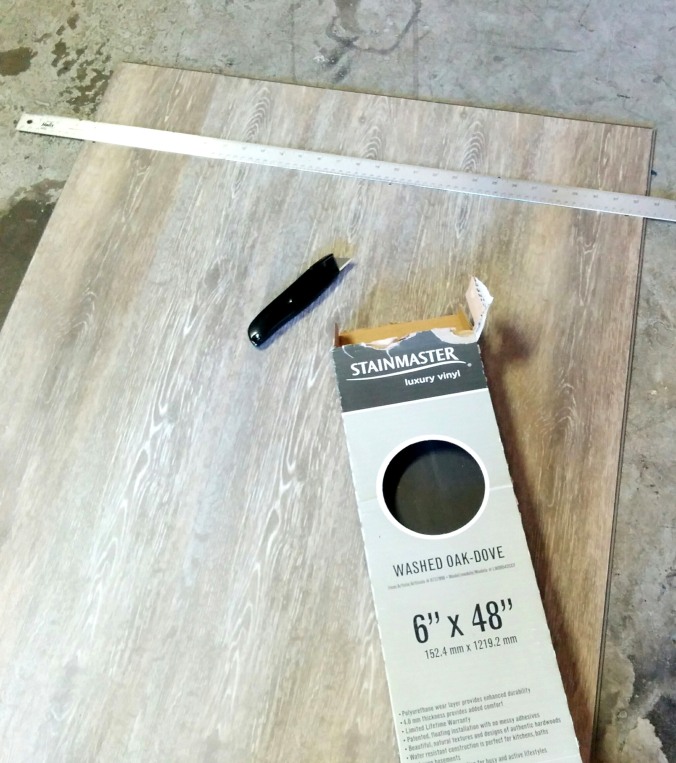
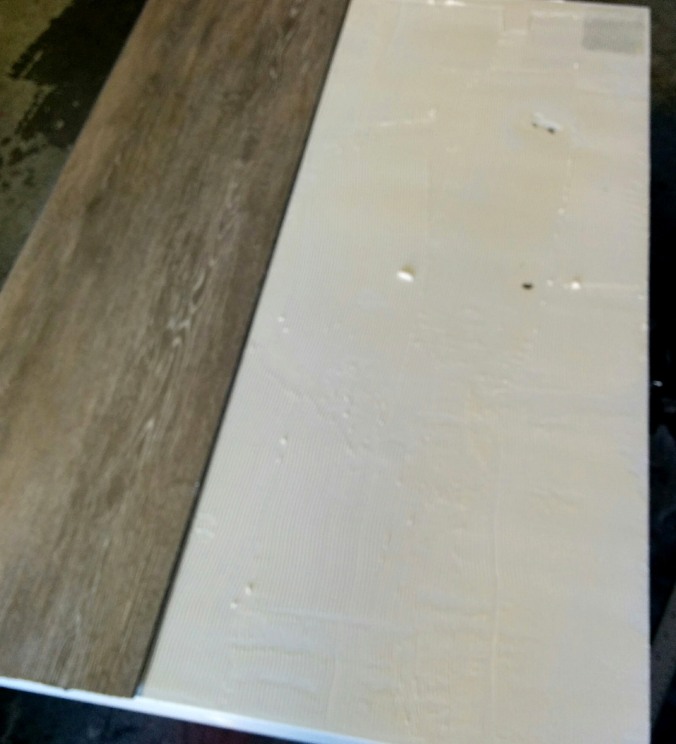

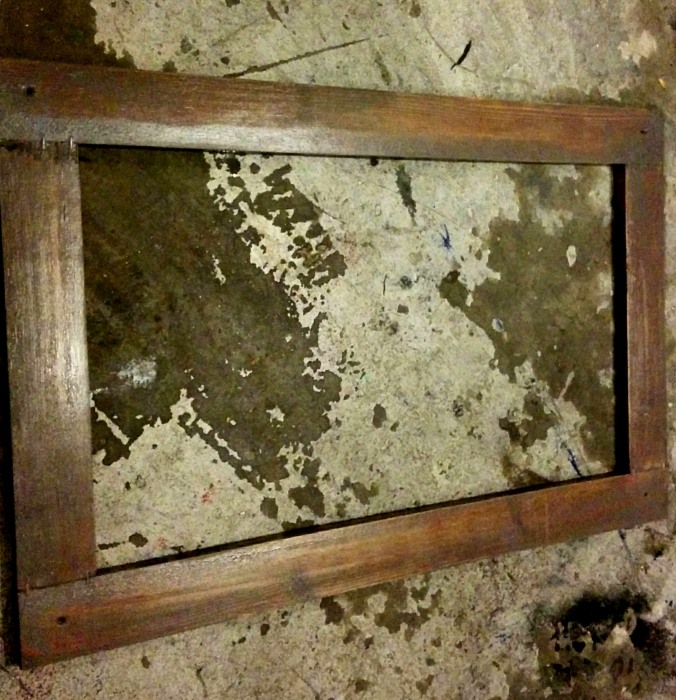
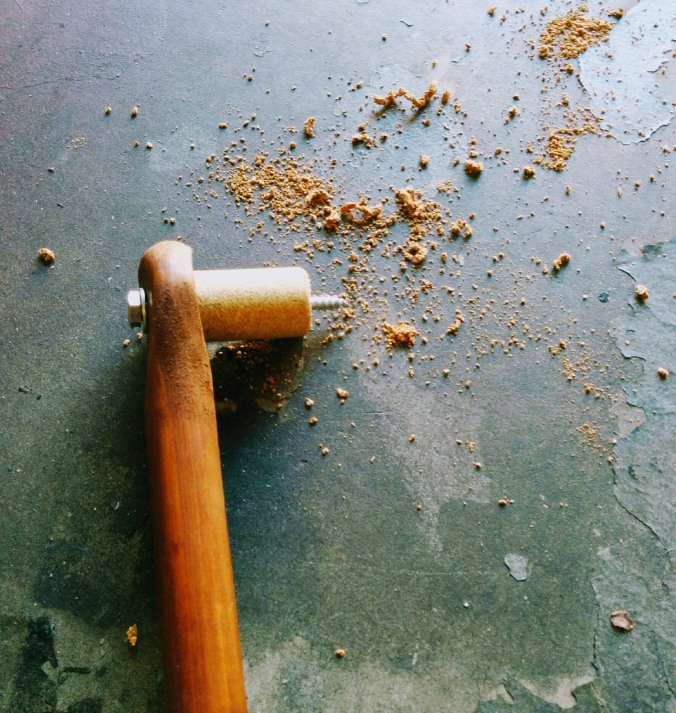
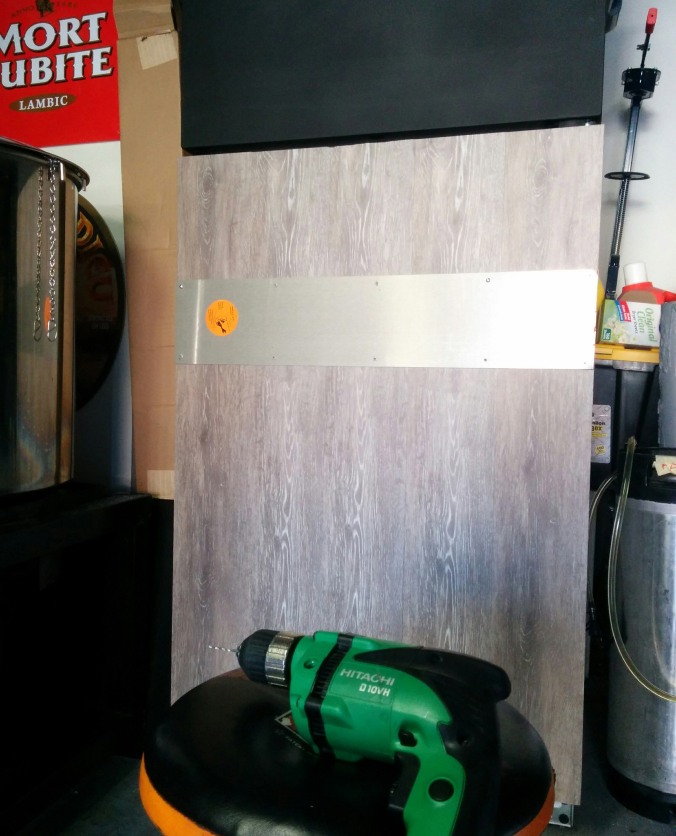
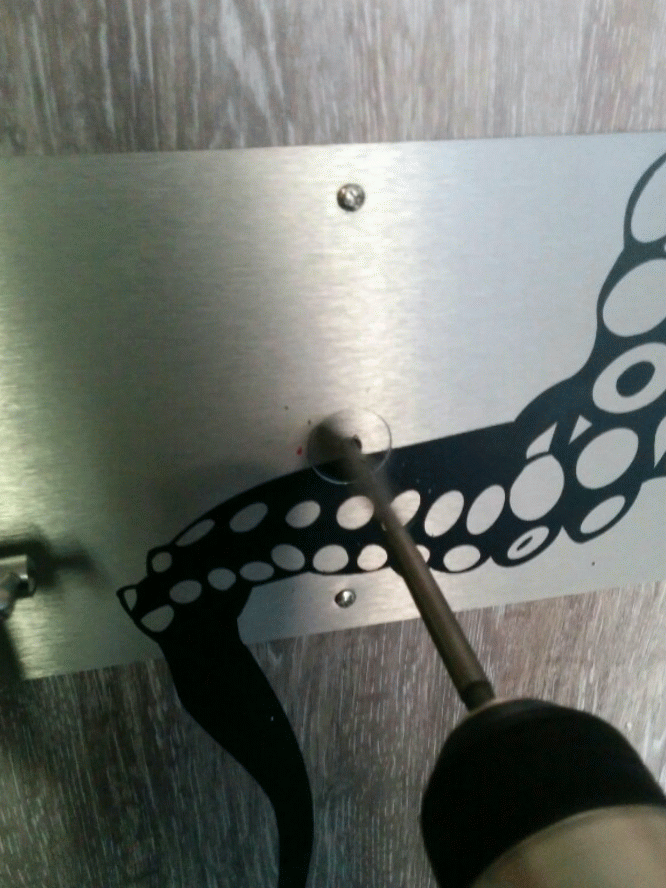
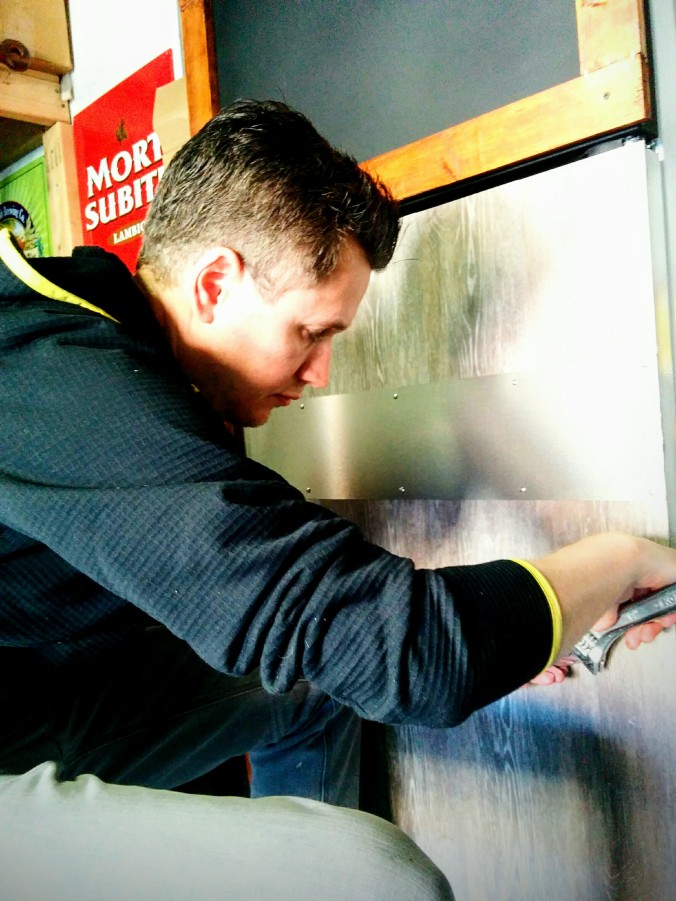
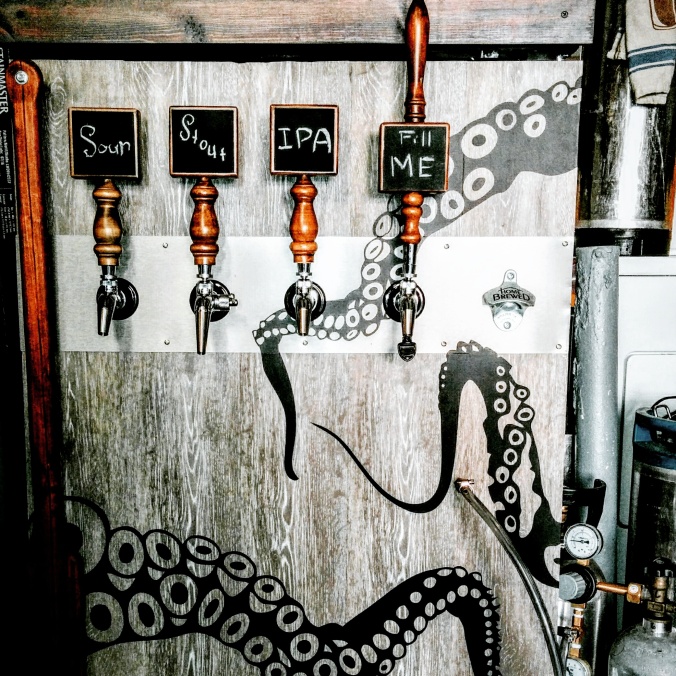



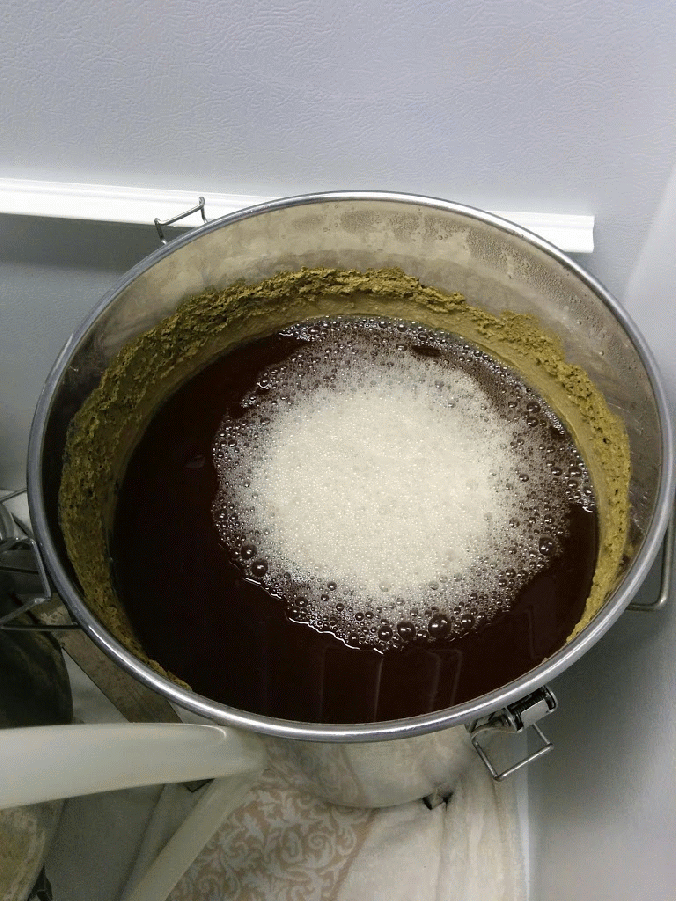


Recent Comments